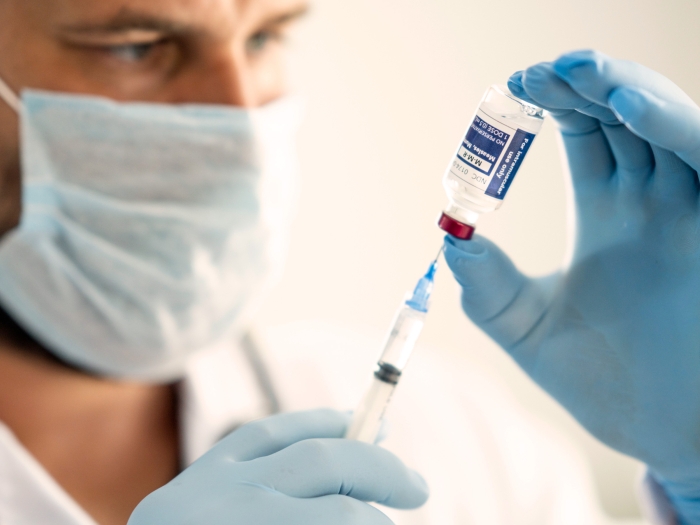Answers to your most pressing questions on where coronavirus testing stands.
4:36 PM
Author |
Editor's note: Information on the COVID-19 crisis is constantly changing. For the latest numbers and updates, keep checking the CDC's website. For the most up-to-date information from Michigan Medicine, visit the hospital's Coronavirus (COVID-19) webpage.
Interested in a COVID-19 clinical trial? Health research is critical to ending the COVID-19 pandemic. Our researchers are hard at work to find vaccines and other ways to potentially prevent and treat the disease and need your help. Sign up to be considered for a clinical trial at Michigan Medicine.
Testing for COVID-19 has been a contentious subject, with many viewing increasing the amount of testing as a key feature to ending the pandemic.
In an hour-long livestream event, Duane Newton, Ph.D., director of the clinical microbiology laboratory at Michigan Medicine, discussed the ins and outs of testing for COVID-19, touching on a variety of crucial questions, from the testing of asymptomatic people to the role of antibody tests.
Some highlights:
Right now, who is being prioritized for testing?
There are a number of different groups we're focused on. First and foremost, patients that are sick that have significant infections and require being admitted into the hospital. Those are the highest priority patients that we've seen, with many coming in through the emergency room. We also do testing of healthcare workers that have developed symptoms. Typically, that's not because of their exposure to anything in the hospital, just living their lives outside of the hospital. But we want to make sure they're not sick and bringing the virus into the hospital…More
Why does it seem so hard to increase the amount of testing in the U.S.?
That's a good question and a difficult question to completely understand. I think it would be helpful to understand what it takes to bring a test up. The landscape pre-COVID-19 we were operating in and let's compare that to the landscape we're in now. Normally, most of the tests we use in our lab are developed by commercial manufacturers and they spend a lot of time and energy doing clinical trials to show those test work well as they're designed to diagnose those infections. Those clinical trials often take several months to a year and utilize thousands and thousands of specimens being tested…More
Will an antibody test be able to tell me if I had COVID in the past?
In most cases it should and that's a good question that we and many others are trying to answer. There are new tests that have been developed to detect COVID-specific antibodies. What it can tell you is that if it's positive you have been infected. What we don't know is how long those antibodies will persist and be detectable in your blood…More
I feel like the thought process is if we are able to test a broad enough range of people in the population, we would know how prevalent the infection was in the population—how many people have been exposed already—and if those rates are high and everyone has recovered presumably the individuals are protected from re-infection. So you have generated a huge amount of population that are not susceptible to infection and would generally reduce the likelihood of transmission. Then if a person is infected, that would be a rarer situation and you could ID that person, isolate them and do contact tracing around that person and monitor the exposed individuals around them to see if they become infected…More
It concerns me on a personal level. But at professional level I don't think any of our tests are good enough to prove anything. No test is good enough. I think we are developing a lot of experience and know how they perform but don't know what their limitations are—no test is perfect…More

Explore a variety of healthcare news & stories by visiting the Health Lab home page for more articles.

Department of Communication at Michigan Medicine
Want top health & research news weekly? Sign up for Health Lab’s newsletters today!





